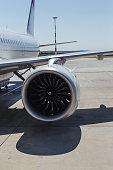edmundoajf830
About edmundoajf830
The Rise of Private Jets: A Complete Study on Their Impact And Future Trends
Introduction
The aviation business has witnessed significant transformations over the past few a long time, and one of the most notable developments has been the growing recognition of private jets. Once thought-about a luxury reserved for the elite, private jets have turn into more accessible and at the moment are utilized by a various range of individuals and businesses. This research goals to discover the rise of private jets, their financial influence, environmental issues, and future traits which will form the trade.
Historical Context
The idea of private aviation dates again to the early 20th century, with the primary private aircraft being used for personal transportation. Nevertheless, it was not till the put up-World Battle II period that private jets started to realize traction. The introduction of business jets within the 1960s, such because the Learjet 23, revolutionized the business, making air travel extra handy for business executives and affluent individuals. Over time, developments in know-how and design have led to the development of a variety of private jets, catering to varied wants and preferences.
Market Overview
The private jet market has experienced substantial development in recent times. Based on a report by the worldwide Business Aviation Affiliation (GBAA), the worldwide business aviation market is predicted to reach $35.Four billion by 2025. Factors contributing to this progress embody an increase in excessive-net-value people, the expansion of enterprise operations throughout borders, and the want for time effectivity in journey. The COVID-19 pandemic further accelerated this pattern, as many people sought safer and extra private journey choices, resulting in a surge in private jet bookings.
Economic Impression
The private jet industry plays a significant position in the global economy. It helps 1000’s of jobs, from manufacturing and upkeep to flight operations and help companies. In accordance with a study by the Nationwide Enterprise Aviation Association (NBAA), business aviation contributes roughly $one hundred fifty billion to the U.S. economy annually. Furthermore, the trade generates tax revenues for native and national governments, making it an integral part of economic progress.
Private jets additionally provide vital benefits to companies. Firms that utilize private aviation usually report elevated productivity, as executives can journey to multiple destinations in a single day, attend meetings, and return home without the hassles of commercial air journey. This efficiency can lead to higher enterprise outcomes and a competitive edge available in the market.
Environmental Concerns
Regardless of the economic advantages, the private jet industry faces scrutiny regarding its environmental impression. Private jets are sometimes criticized for his or her excessive carbon emissions in comparison with industrial airways. In line with a report by the Worldwide Council on Clean Transportation (ICCT), private jets emit up to 14 instances more carbon dioxide per passenger compared to commercial flights. This has raised issues concerning the sustainability of private aviation and its contribution to climate change.
In response to these considerations, many manufacturers and operators are taking steps to cut back their carbon footprint. This consists of investing in additional fuel-efficient engines, exploring sustainable aviation fuels (SAFs), and adopting carbon offset programs. Moreover, some firms are exploring electric and hybrid aircraft as a means of reducing emissions sooner or later.
Regulatory Panorama
The private jet trade is subject to varied laws that govern security, security, and environmental standards. Within the United States, the Federal Aviation Administration (FAA) oversees the operation of private jets, guaranteeing compliance with safety laws. Additionally, worldwide our bodies such as the International Civil Aviation Group (ICAO) set requirements for world aviation practices.
As environmental considerations continue to rise, regulatory our bodies might implement stricter emissions standards for private jets. This could influence the design and operation of aircraft, pushing manufacturers to innovate and develop greener applied sciences. Furthermore, governments could introduce incentives for operators to undertake sustainable practices, reminiscent of tax breaks for utilizing SAFs or funding for analysis and development of electric aircraft.
Future Developments
The future of private jets is poised for transformation as technology continues to advance and consumer preferences evolve. A number of key developments are more likely to form the business in the coming years:
- Sustainability Initiatives: As environmental awareness grows, the demand for sustainable aviation choices will improve. The business is likely to see a rise in the usage of SAFs, electric aircraft, and innovations geared toward lowering emissions.
- Digitalization and Connectivity: The combination of expertise into private aviation will improve the journey expertise. From in-flight connectivity to advanced booking systems, digital options will streamline operations and improve customer support.
- Fractional Possession and Jet Sharing: To make private aviation more accessible, fractional possession and jet-sharing applications are gaining popularity. If you have almost any issues concerning exactly where and tips on how to utilize private jets charters, you possibly can email us in our internet site. These models permit individuals and companies to share the costs and advantages of private jet travel, making it a more economical option.
- Urban Air Mobility: The development of city air mobility (UAM) options, similar to air taxis and drones, might revolutionize short-distance travel. This could lead to the emergence of recent business models and alternatives within the private aviation sector.
- Well being and Security Protocols: In the wake of the COVID-19 pandemic, health and security will stay a prime precedence for private jet operators. Enhanced cleaning protocols, contactless companies, and health screenings will seemingly develop into commonplace practices in the trade.
Conclusion
The rise of private jets has remodeled the panorama of air travel, offering individuals and businesses with unparalleled convenience and effectivity. Whereas the business faces challenges associated to environmental sustainability and regulatory compliance, ongoing improvements and a dedication to accountable practices will shape its future. As private aviation continues to evolve, it is going to be important for stakeholders to steadiness economic development with environmental stewardship, ensuring that the benefits of private jets could be loved for generations to come.
No listing found.

